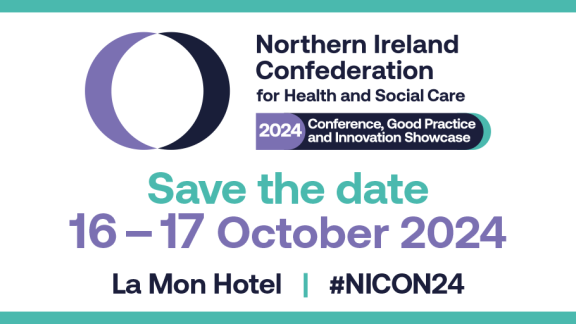2021/22 priorities and operational planning guidance
NHS England and NHS Improvement published the priorities and operational planning guidance for 2021/22 on 25 March 2021. It covers priorities for the first half of the year, except for mental health, whose priorities are covered for the full year. The priorities will be delivered through plans that cover all providers within an integrated care system (ICS). This is a summary of the key points regarding primary care.
Staff health and wellbeing, and recruitment and retention
- Systems will review and refresh their people plans to show greater progress on equality, diversity and inclusion; progress on compassionate and inclusive cultures; and increasing workforce supply.
- Individual health and wellbeing plans will be agreed at least annually and should take place in the first half of the year.
- There will be national investment to rollout mental health hubs to give all staff rapid access to psychological and specialist support.
- Systems will develop workforce plans, of which PCNs will be the foundation.
- Systems will assist PCNs in making best use of their ARRS funding, including the options of rotational roles and joint employment.
COVID-19 and the vaccination programme
- The priority to offer first doses to all adults by end July remains key and this will continue to be delivered through a mixed model of local and mass vaccination sites.
- PCN groupings have the option to vaccinate cohorts 10-12, provided they can fulfil the requirement of the GMS contract – letter containing detail.
- Systems will need to be prepared for a possible COVID-19 re-vaccination programme in the autumn, and the possibility of vaccinating children. JCVI will issue guidance. The role of PCNs is not defined at this point.
- PCNs will continue with their role in the pandemic response. This includes home oximetry, ‘hospital-led’ virtual wards, and proactive virtual care pathways. Systems will take this into account when preparing for future surges.
Transforming the delivery of services
- Primary care will support the review and validation of waiting lists for elective inpatient, outpatient and diagnostic services. These plans will focus on analysis of waiting times by ethnicity and deprivation.
- There will be whole pathway transformations in cardiac, musculoskeletal (MSK) and eye care across systems.
- GPs will work with their local population to encourage patients to come forward as part of each ICS’s cancer alliance plan to investigate, diagnose and treat.
- Systems should actively support general practices to complete the QOF QI module on early cancer diagnosis.
- GPs are to deliver physical health checks for serious mental illness (SMI) patients, with new QOF indicators.
- A new metric will measure SMI patients accessing community mental health services.
- Improved integration with community mental health will be via co-funded additional PCN mental health practitioner posts as agreed in the NHS Contract and GP Contract.
- There will be annual health checks for people with learning disabilities.
- The accuracy of GP Learning Disability Registers’ will be improved, particularly for under-represented groups.
Expanding primary care capacity to improve access, local health outcomes and address health inequalities
- Additional £120m in the first half of the year to increase general practice capacity.
- Systems are to prioritise local investment and PCN development support, including integration with community-based services.
- Systems are expected to support their PCNs to achieve their share of 15,500 FTE PCN roles in place by the end of 2021/22, expand the number of GPs towards the 6,000 target, and to make progress towards delivering 50 million more appointments in general practice by 2024
- Pre-pandemic appointment levels will be restored, with system support, which includes a mixture of face-to-face and online.
- Practices to reach out to clinically vulnerable patients to provide equal and fair service delivery.
- QOF indicators reintroduced from April to tackle the backlog of clinically prioritised long-term condition management reviews, including medication reviews and routine vaccinations.
- Community Pharmacy Consultation Service (CPCS) advanced service extended to receive referrals from General Practices. Prior to receiving referrals, PCNs, GP practices and local pharmacy contractors should work with their LPC, LMC and regional teams to agree implementation.
- Population health management techniques will be used to aid targeted recovery strategies, promote equitable access and optimal outcomes for all groups. Personalised care: proactive, multi-disciplinary, cross-sector support to be provided by systems to at-risk groups, those with greatest health inequalities or most complex needs, and awaiting multiple appointments. NHSEI is working with systems to develop real-time data tools and techniques to identify these patients.
- Systems will develop plans for the prevention of ill-health, covering both primary and secondary prevention deliverables as outlined in the Long Term Plan, and setting out support for the expansion of smoking cessation services, improved uptake of the NHS diabetes prevention programme and CVD prevention.
- Expectation of 1.2m personalised care interventions in 21/22 via ARRS Social Prescribing Link Workers, Health and Wellbeing Coaches, and Care Coordinators; and the acceleration of existing Comprehensive Model for Personalised Care requirements, including personal health budgets, social prescribing referrals and personalised care and support plans.
- Implementation - working collaboratively across systems to deliver on these priorities
- The impact of these priorities can be felt throughout primary care and systems will need to have developed a Memorandum of Understanding (MOU), setting out the delivery and governance arrangements for these NHS priorities, including the oversight mechanisms and structures by June.
The PCN Network view
The overall direction of the priorities is welcome with a real focus on staff health and wellbeing as well as addressing health inequalities. There is significant emphasis on development of system-wide plans that clearly set out how these priorities will be delivered. The commitment to whole-system working is welcome but there is a risk that without effective primary care input into these plans, they may fail to deliver on their ambitions.
Primary care has been at the forefront of workforce innovation both within and outside of ARRS, employing practitioners based on population health management needs and embedding them across practices to best meet patient demand. But we know that not all PCNs have been able to make as much progress as they would have liked and they will need support from the system to meet the workforce requirements and facilitate more innovative approaches to employment such as rotational roles and remotely-delivered care.
We have advocated for a cross-sector, clinically led, approach to waiting list validation. This provides a real opportunity for collaboration across the system and, when carried out effectively, has the potential to have a positive impact on recovery and cement relationships across the system. An approach that includes Evidence Based Intervention and getting it right first time (GIRFT) principles with application of shared decision-making where possible will lead to a rethink not only on the backlog but also about future referral patterns.
The plans are laudable but we need to recognise that in order for them to deliver a successful outcome effective involvement from primary care is a necessity. This cannot be done on top of delivering a vaccination programme and managing its own recovery without further investment. The additional funding for PCN clinical directors throughout COVID-19 has been instrumental in providing the additional leadership and management capacity needed to fulfil their role effectively. Its continuation for all CDs is vital if we want meaningful engagement in system planning and delivery.



